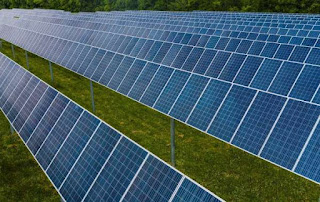Your Guide to seasonal Solar Panel Performance

Introduction
Solar panel systems completely depend upon sunlight to generate energy; they give the best outcomes during the time of the year when sunlight is prevalent for longer durations. Many factors affect solar panel efficiency apart from the time of the day. Solar panels efficiency relies upon location, weather, and temperature.
However, weather conditions impact more than any other factor on solar panel performance. We think more sunny days enhance the functioning of panels, but it is the contrary. Winter with a clear sky is an excellent period for increasing solar panel efficiency. Let us have a glimpse of how seasonal changes affect solar panel efficiency.
Cold climates
The chilled seasons like autumn and winter, have cloudy skies. The solar systems sunshine coast will keep producing clean energy in a lesser amount. Partly cloudy days drop energy production by a certain percentage. The cold weather is also apt for solar energy generation as long as the solar panels are exposed to direct sunlight on a clear day.
The blowing of high winds also impacts solar panel performance. Since the dust and debris get accumulate over the panels. Hence, it needs occasional cleaning to maintain optimal clean energy production.
Hot climates
People think solar panels generate more energy power during hot summer days. However, it is partly true since there's more to consider. Temperature can impact the functioning of many electronic devices, including solar panels. Solar panels can generate less voltage with the temperature rise. Hence, the solar sytem sunshine coast becomes less efficient during the hot summer days. However, the summer months are the perfect time for electricity generation since almost every day is a sunny day in hot climates.
Rainy Seasons
The functioning of solar panels continues even on cloudy days. The only issue you willl face is that the energy production doesnt go at its zenith. If the sun is up in the sky, shining in any capacity, direct or indirect sunlight will still help solar panels generate clean energy. However, an occasional rainstorm is also good for the solar sytem. It is a safe and cost-efficient means to get solar panels cleaned.
Snowy seasons
The solar panel can still function even when a thin layer of snow is formed over them since the sunlight can penetrate through the snow. The panel needs to be cleaned more often to remove any layers, snow, or debris. It will increase solar panel efficiency. Although, the layer of snow melts because of the electricity production by the solar panels. The angle of solar panel installation also matters since it helps the snow slide off the roof.
Some of the seasons provide daily sunshine. In contrast, other seasons develop adverse weather conditions that reduce the solar panels efficiency. Under extreme solar weather conditions, their efficiency starts declining, yet they can produce an ample amount of electricity on a very hot summer day. However, the solar sytem sunshine coast functions at its peak under a temperature below 80 °F. All in all, solar panels efficiency deeply relies upon the weather conditions.
Source URL: https://www.accordelectrical.com.au/

.jpg)
Comments
Post a Comment